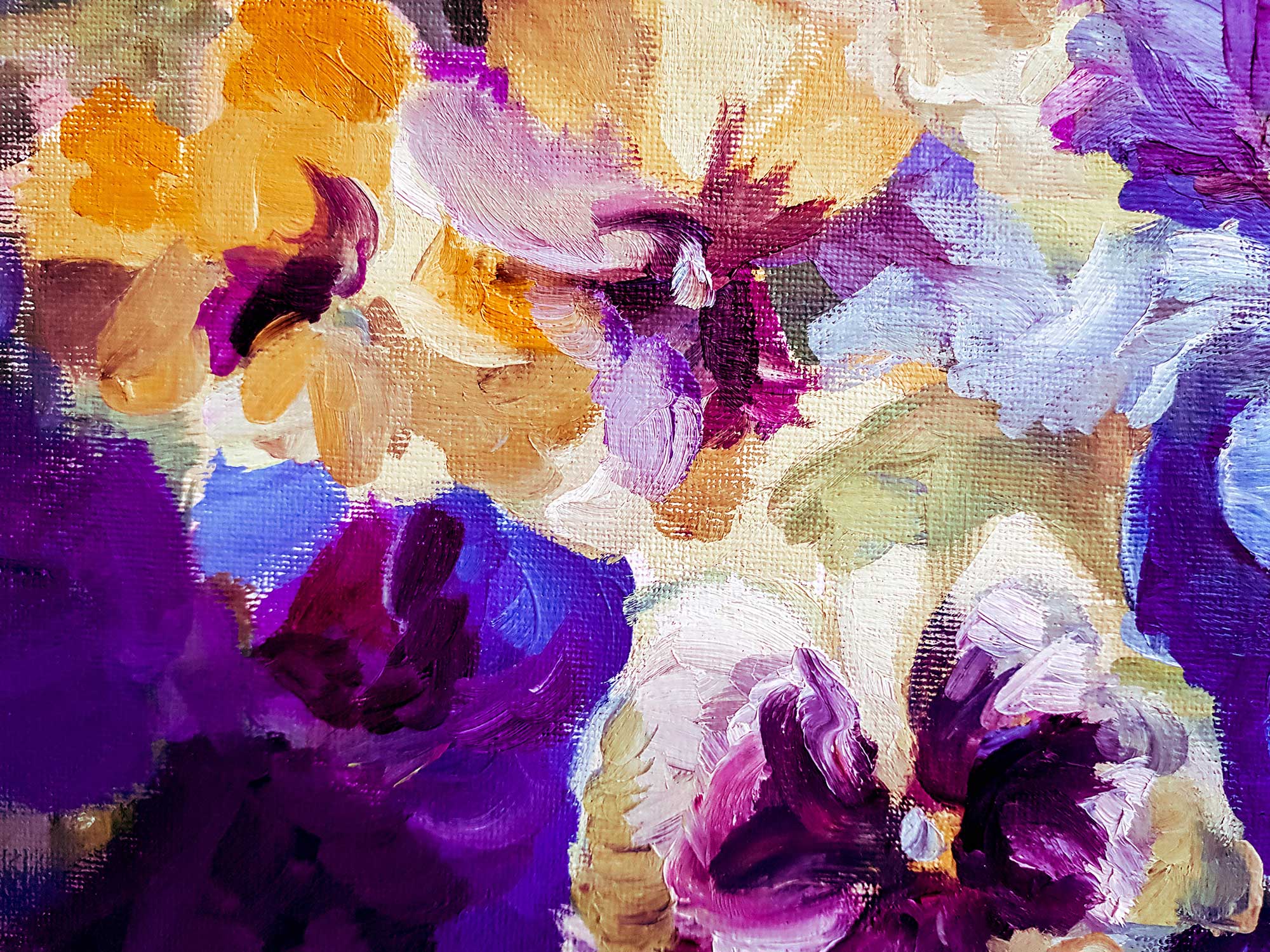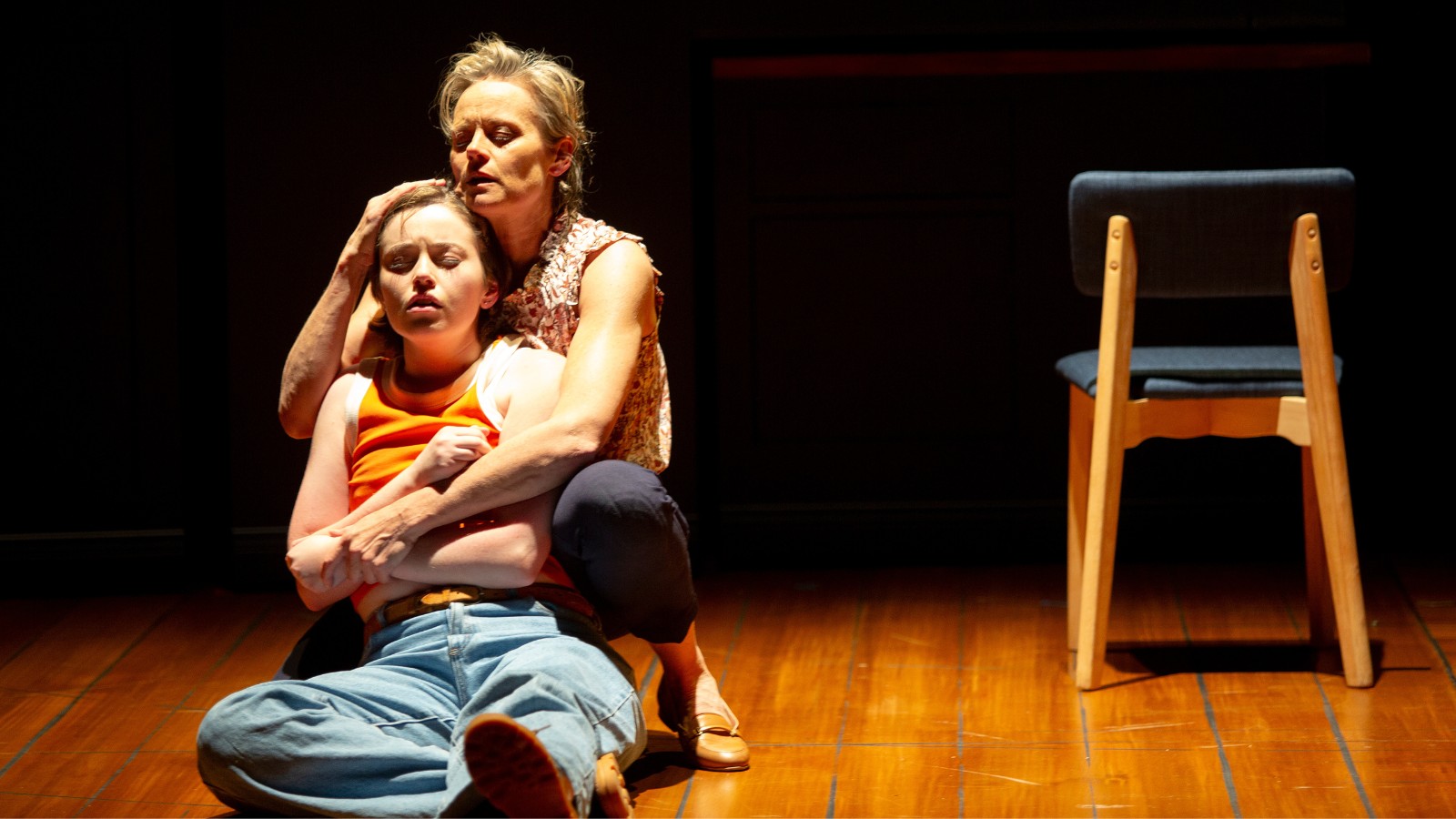Hot Desk Extract: Denaturing
As part of the Wheeler Centre Hot Desk programme, Miriam Webster worked on Denaturing, a collection of short stories.

The women in these stories are haunted by madness, the body in revolt, by bad men and astrology, by millennial dread and thwarted desire. We have been told it’s in our nature to be unpredictable, but this collection sees what is strange and surprising about women and wild places as funds of creativity and delight. This excerpt is from the title story.
1.
At sunset on our wedding day you fed me white anchovies and promised to regard me with lasting delight. It would be impossible to stay delighted by someone forever, I thought of saying, but instead I sat there in my lovely diaphanous dress with my mouth full and salty and I felt an urgent, beatific tranquillity. When we signed the certificate, the celebrant joked about the similarity of our names. It always was a little awkward. Much later, after all the guests had gone home, we undressed. I noticed a flower growing out the end of your penis.
Has that always been there? I asked.
You looked at me strangely.
Of course it has, you said. I can’t believe you haven’t noticed.
But I was certain it wasn’t there before.
Still it was beautiful, the way you bloomed. The petals of your flower were a most delicate purple. I took a picture on my phone for the record. In the picture you are lying down but your penis is standing upright in a way that appears sensitive to the responsibility it bears. In the picture it looks sort of like a vase; you see them around in gift shops, these vases made to look like body parts: a vulva, a breast. In the shops it’s always the women parts that are vessels, but I liked the way your penis seemed to be challenging consumer culture. It was so like you. I was afraid to touch your flower, its lovely petals. When I did, you trembled all over.
Afterward I joked you’d been deflowered. I sat in my stockings on the edge of our marriage bed reciting sonnets, pretending you were my muse. You blushed like a spring morning and looked very beautiful. Standing up you were thin and ungainly, but lying down your limbs became green and graceful, like ferns. Those were our salad days. We were young when we got married, but not very. Not as young as our grandmothers, who were very young indeed.
In the morning there was dirt between the sheets and we couldn’t figure out where it came from.
2.
In the days that followed I tried everything to get you out of your pants. You gazed upon me with mild curiosity and let yourself be relieved of your underthings. You must have been thinking something like, Wow, contracting herself to me for eternity has made my wife incredibly horny. Actually, I was trying to figure out the deal with your flower. Was it going to be a permanent fixture, or just a wedding night thing?
What’s gotten into you? you asked.
Nothing, I replied sweetly. I’m just happy to be your wife.
Actually I hated the word, but forces had been conspiring to wear down my resistance. I never wanted to be married. I am a child of divorce, so even before I became political my parents ruined it for me; we call ourselves CODs. But you have two mothers who waited a long time for marriage to be their right, so in your house marriage is not reinscription but a big FUCK YOU to the patriarchy. I still couldn’t work out how it fit in with our convictions, but when you asked to join our houses I was seized with a fit of inspiration; I looked to your mothers and without really knowing what I was doing I must have said yes, oh yes.
You called yourself an anarchist, and in your spare time helped to organise many strikes and rallies where the imperative was to fuck shit up. I, too, believed in the value of fucking shit up: fucking in the sense of dismantling, rearranging, searching for new forms, fucking in the sense of spontaneous eruptions of desire. Perhaps that’s what we were trying to do with marriage, attempting, at least aesthetically, to blow it up from within. I admired your fervour but I could never get around the revolutionary language; when you and your friends called each other comrade it sounded too much like men lusting after war.
We did not go on honeymoon and instead saved our money to move into a two-bedroom unit in Coburg. So this was marriage, I thought, pooling our resources to hire a van for the day, loading and unloading furniture, arguing about the proper place for a cheese grater to live. That night we sat on the floor surrounded by boxes, drinking beer and eating fish and chips. You wiped the grease from your lips with the back of your hand and pulled me onto your lap, and we were mired in the chaos of things half-unpacked, but for a moment everything was in its right place.
The only thing was this: the house smelled of cat piss and mould. During the day while you were at work I tried to mask the smell with other fragrances: incense, flowers, Palo Santo, perfume. When that didn’t work I experimented with the atmosphere, turning the heating and cooling up and down, creating steam, opening windows. Nothing helped. The smell was a distraction; I found myself thinking about deodorisers when I was supposed to be painting. So this is how it begins, I thought. This is how being a wife becomes your identity; this is how the domestic takes over your entire life.
Eventually I worked out the smell was coming from the carpet. I hired a machine and spent all day soaping and steaming the carpet in every room, hating my life. When you got home from work I faked a cheerfulness I did not feel and you said it smelled original, which I thought was a strange way of saying it smelled clean.
Good work, you said.
That’s why you married me, I said merrily.
– Miriam Webster
Related Posts

Read
Read an excerpt from The Almighty Sometimes
30 Apr 2024

Read
What's on in May: Resident Organisation Round Up
29 Apr 2024

Read
Anne-Marie Te Whiu Receives The Next Chapter Alumni Poetry Fellowship
2 Apr 2024

Read
What's on in April: Resident Organisation Round Up
28 Mar 2024

Read
Blak & Bright First Nations Literary Festival returns in 2024
7 Mar 2024

Read
What's on in March: Resident Organisation Round Up
29 Feb 2024
Share this content